If you live in a cold region, then an engine block heater can be the difference between a quick start and a long, drawn-out process of waiting for your car to warm up. But while block heaters are common in diesel engines, can you install them in a gas engine? Let's take a look to see if this is possible below.
Block heaters can be installed in gas engines, but they are not as common. This is because diesel engines typically require them more to function properly in cold weather. That said, if you live in a region with very cold winters, a block heater can help your gas engine start quicker and run more smoothly.
While it may not be necessary for every driver, a block heater can give you some extra peace of mind on those cold mornings. In this article, we will discuss how a block heater works and when it makes sense to get one for your gas engine. In addition, we will answer other frequently asked questions about block heaters, so read on!
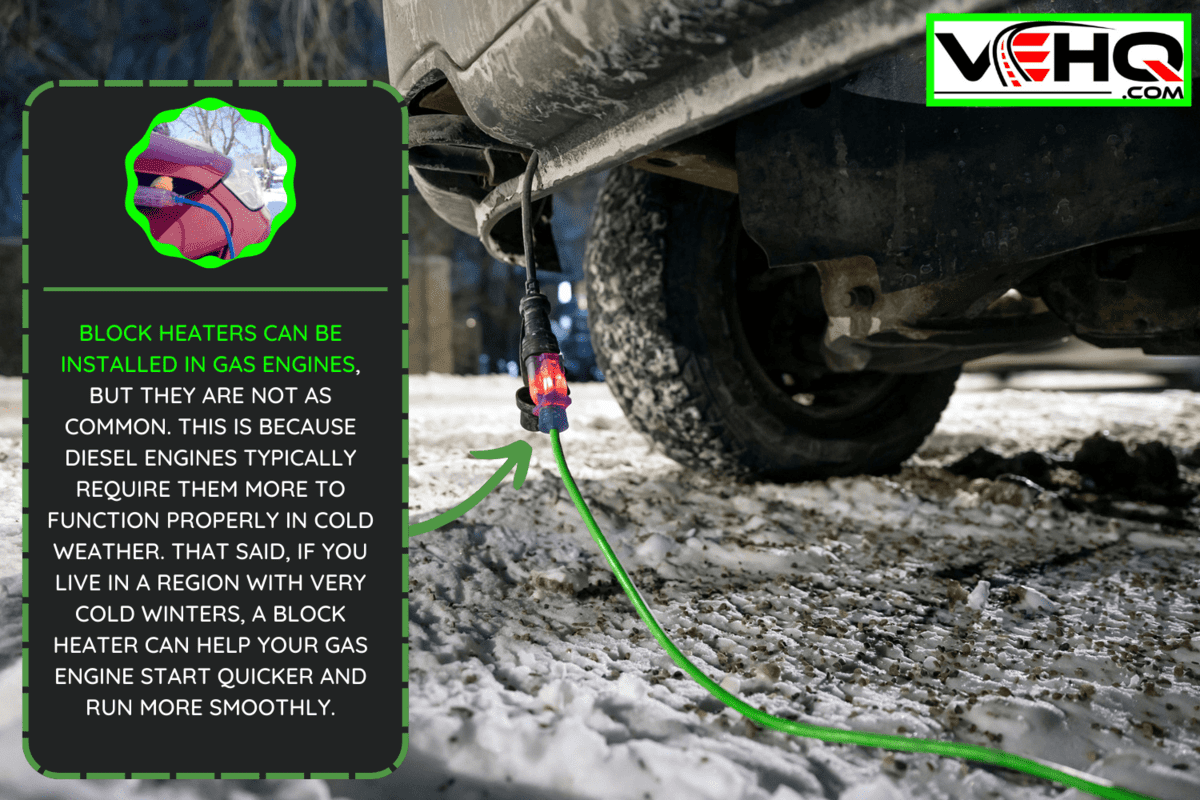
Should I Put A Block Heater On My Gas Engine?
The sole purpose of a block heater is to keep an engine's coolant warm. In turn, this warms up the engine itself so that it can reach its operating temperature more quickly. This is especially beneficial in cold weather when an engine can take a long time to warm up otherwise.
That said, gas engines typically do not require a block heater to function properly. Instead, you will see block heaters commonly used in diesel engines.
This is because diesel fuel thickens in cold weather, making it harder for the engine to start. A block heater can help thin out the diesel fuel so that the engine can start more easily.
However, this does not mean that a block heater cannot be used on a gas engine. Say you live in a region where temperatures regularly dip below freezing. In this case, a block heater can help your gas engine start quicker and run more smoothly.
If your gas engine is struggling to start on more than one occasion, it may be worth considering a block heater. However, we recommend talking to your mechanic first to see if this is the best solution for your engine. They can then help you choose the right block heater and install it properly.
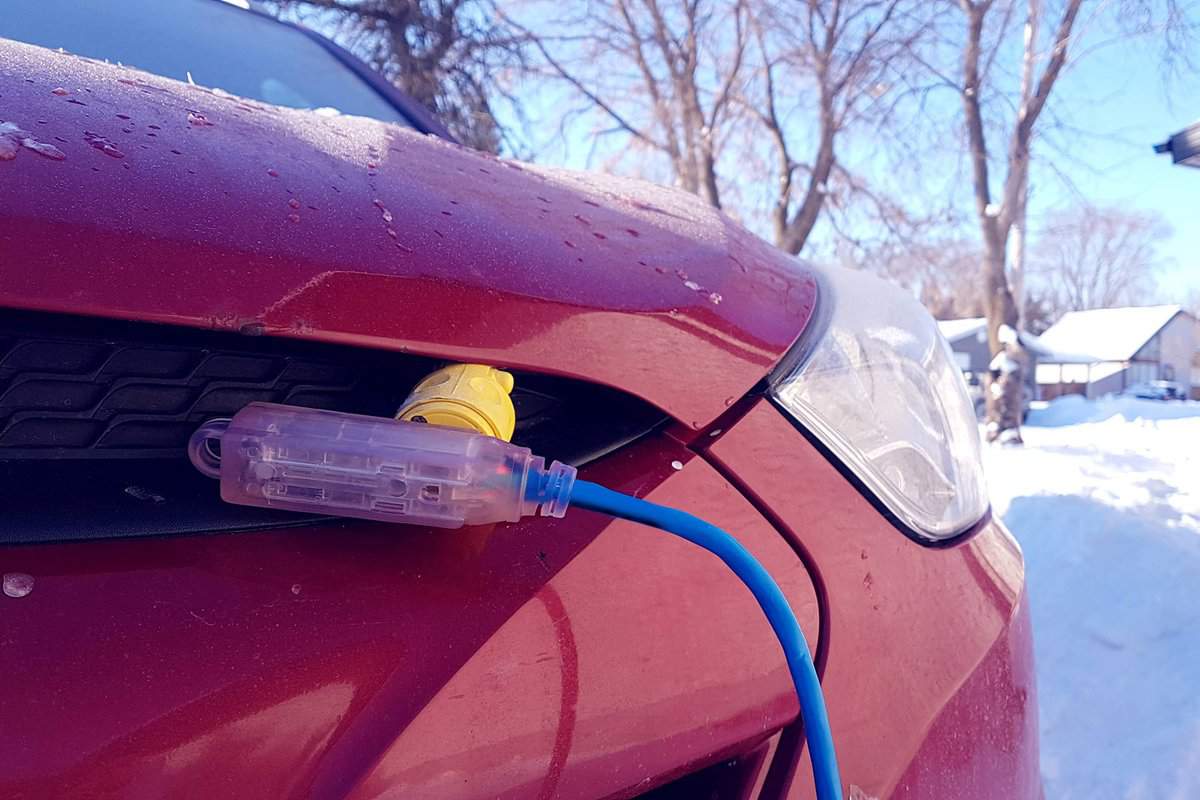
How Does A Block Heater Work?
A block heater works by warming up an engine's coolant before starting the engine. The coolant is circulated through a heating element inside the block heater, which raises its temperature.
Once the desired temperature is reached, the block heater is then unplugged, and the engine is started as usual. The warmed coolant then circulates through the engine, warming it up more quickly than if the engine was started with cold coolant.
Depending on the size and power of the block heater, it can take anywhere from 30 minutes to a few hours to heat up the coolant.
Some block heaters also have a thermostat that will automatically turn off the heater once the desired temperature is reached. This helps to prevent the coolant from getting too hot and damaging the engine.
Block heaters typically come in two types: oil pan heaters and cylinder head/freeze plug heaters.
Oil pan heaters are the most common type and are less expensive than cylinder head/freeze plug heaters. They are also easier to install, making them a good option for those who are not mechanically inclined.
Cylinder head/freeze plug heaters are more expensive but tend to work better in extremely cold temperatures. This is because they heat up the coolant more quickly, making them ideal for diesel engines that need to thin out cold diesel fuel.
How Much Is A Block Heater?
Luckily, block heaters are relatively inexpensive. You can find them for around $40-120 depending on the type and power.
Some block heaters also come with a cord that can be stored in the engine bay when not in use. This is a good option if you do not have a place to store the block heater indoors.
Installing a block heater is usually a pretty straightforward process. However, we recommend having a mechanic do it if you are not comfortable working with your engine. Of course, this will raise the total cost, but at least you know it will be done correctly.
If you decide to install the block heater yourself, make sure to read the instructions carefully. And as always, if you have any questions, feel free to ask a mechanic for help.
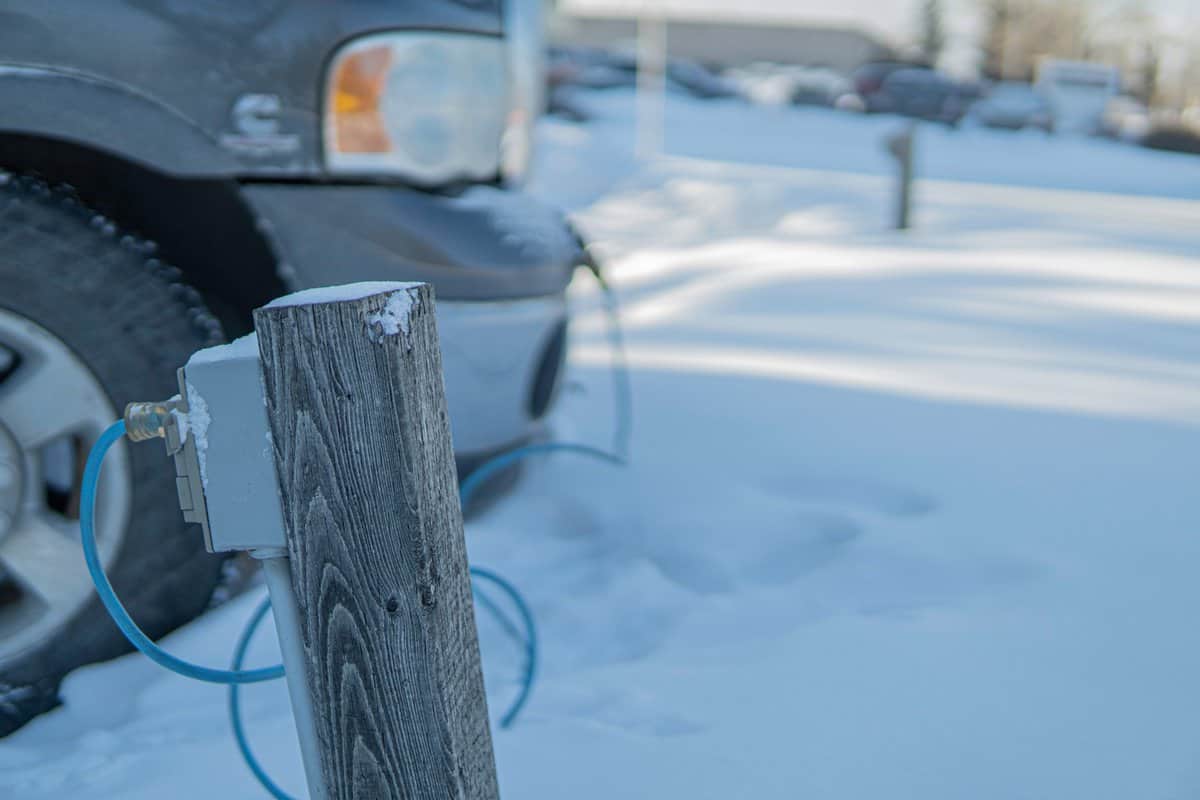
At What Temperature Should You Use A Block Heater?
Typically, you won't need to plug in your block heater until the temperature outside dips below 5 degrees Fahrenheit.
However, this will vary depending on the type of engine you have. For example, diesel engines need to be plugged in at a higher temperature than gas engines because diesel fuel thickens in cold weather.
You should really only use your block heater when absolutely necessary. This will help to prolong its lifespan and prevent it from overworking.
Plus, it's a waste of energy (and money) to heat up your engine when you don't need to. So, only plug in your block heater when the outside temperature is below the recommended level for your engine type.
Should You Plug Your Block Heater In Overnight?
While it may seem like a good idea to plug in your block heater overnight, we don't recommend it.
First of all, you only need a maximum of four hours to heat up your engine. So, there's really no need to leave it plugged in for any longer than that.
Second, leaving your block heater plugged in overnight will just cost you more money in the long run. It's best to only use your block heater when absolutely necessary and unplug it as soon as the engine is warmed up.
Of course, if you're worried about your engine not starting in extremely cold weather, you can always leave it plugged in overnight. In addition, if you have to leave for work early in the morning, it's probably best to plug in your block heater the night before.
This will give it enough time to heat up your engine so you can get on the road without any issues. Plus, no one wants to get up in the middle of the night to plug in their block heater!
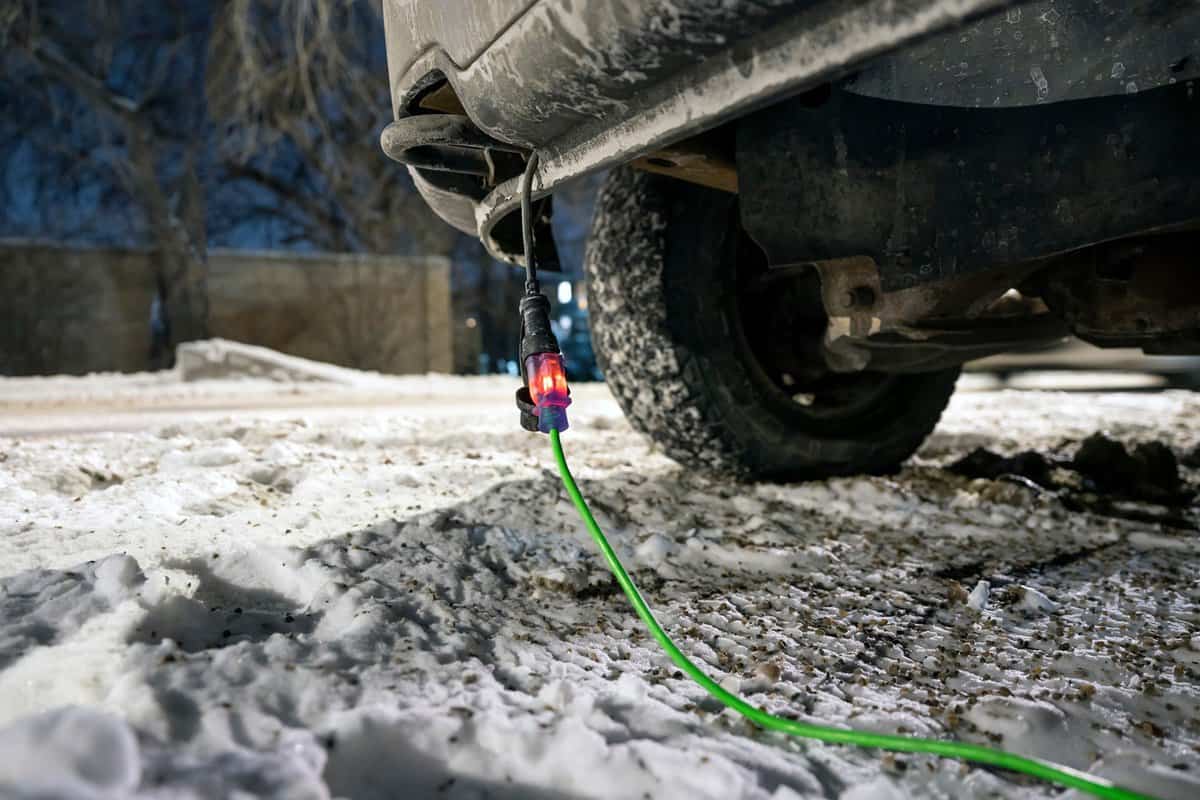
How Do You Know If The Block Heater Is Working?
There are a couple of different ways you can tell if your block heater is working.
First, you can feel the cord to see if it's warm. If it's not warm, then it's not doing its job.
Second, you can open up the hood and feel the engine block itself. It should be noticeably warmer than the surrounding area.
Next, you can check your coolant temp gauge (if your vehicle has one). It should be reading at a higher temperature than usual.
Finally, you can use a multimeter and put it on the ohms setting. Touch the multimeter leads to the two terminals on the plug. If there is continuity, then the block heater is working.
Click here to see this multimeter on Amazon.
If you're still not sure, we recommend taking it to a mechanic and having them check it for you.
What Are Alternatives To Using A Block Heater?
If you don't want to use a block heater, there are a few other options you can try. You can either use a remote starter or have one installed.
A remote starter will allow you to start your car from the comfort of your warm home. You can set it to turn on a few minutes before you need to leave so your car has time to warm up.
Also, if you already have a heated garage or are interested in getting one, that's another great alternative. Just make sure to park your car in the garage overnight so it stays nice and warm.
Another simple solution is to switch to synthetic oil. For gas engines, synthetic oil can be a quick-start fluid that helps your engine turn over in cold weather.
Diesel engines can also benefit from synthetic oil because it has a lower pour point, which means it will flow better in cold weather.
If you're really not interested in using a block heater, there are other options available to you. Just keep in mind that a block heater is the most reliable way to ensure your car will start in cold weather.
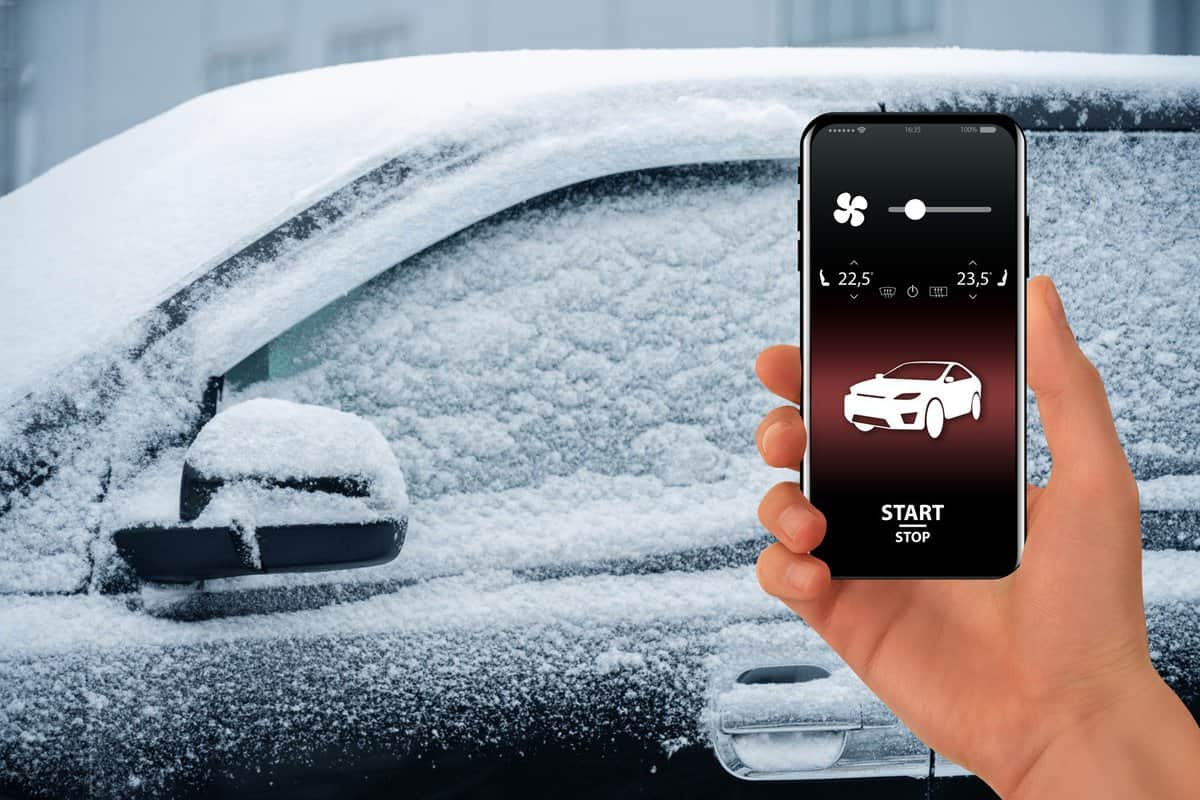
Final Thoughts
If your gas engine struggles to start in temperatures below 5 degrees Fahrenheit, then it's a good idea to invest in a block heater. They aren't expensive and can be a lifesaver in the middle of a cold winter.
Just remember to only plug in your block heater when necessary and unplug it as soon as your engine is warmed up. Otherwise, you'll end up wasting energy and your hard-earned money.
Made it to the end? Here are other articles you might find helpful:
Where Is My Engine Block Heater Cord?

